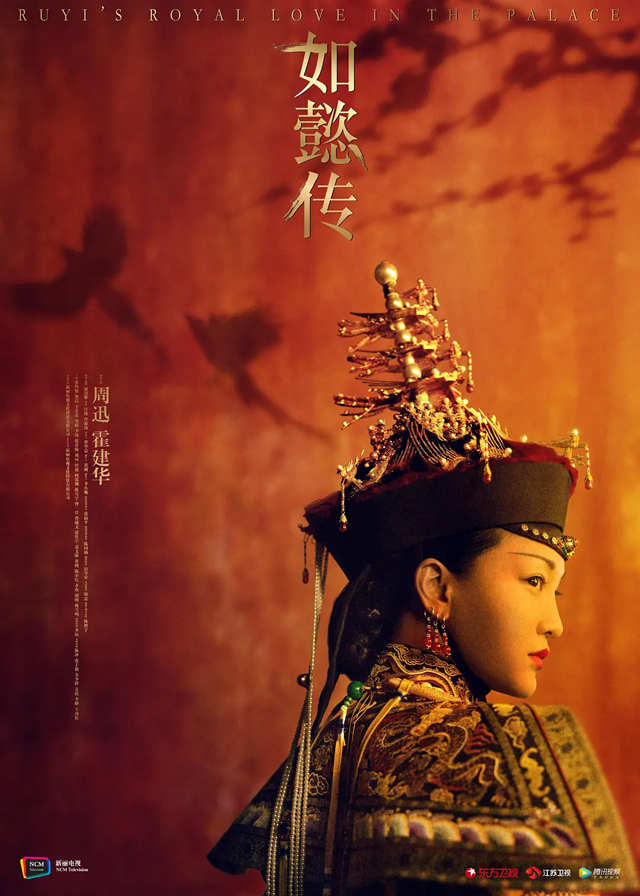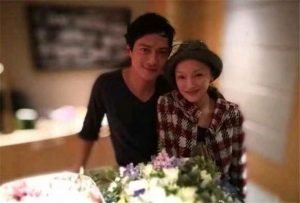Ruyi's Royal Love in the Palace Episode 6 Recap
> Ruyi's Royal Love in the Palace Recap
- 1
- 2
- 3
- 4
- 5
- 6
- 7
- 8
- 9
- 10
- 11
- 12
- 13
- 14
- 15
- 16
- 17
- 18
- 19
- 20
- 21
- 22
- 23
- 24
- 25
- 26
- 27
- 28
- 29
- 30
- 31
- 32
- 33
- 34
- 35
- 36
- 37
- 38
- 39
- 40
- 41
- 42
- 43
- 44
- 45
- 46
- 47
- 48
- 49
- 50
- 51
- 52
- 53
- 54
- 55
- 56
- 57
- 58
- 59
- 60
- 61
- 62
- 63
- 64
- 65
- 66
- 67
- 68
- 69
- 70
- 71
- 72
- 73
- 74
- 75
- 76
- 77
- 78
- 79
- 80
- 81
- 82
- 83
- 84
- 85
- 86
- 87
A'ruo confronted the Internal Affairs Department about the poorly made sachets previously supplied to Consort Xian. She proudly displayed the plaque personally inscribed by the Emperor for Consort Xian (Ruyi), stating that the phrase "Cautious, praise, reputable, sound!" signified her mistress's strong bond with the Emperor. A'ruo emphasized that the Emperor treated Consort Xian with special favor and warned the department against belittling Yanxi Palace.
Empress's maid, Sulian, overheard A'ruo's boasts, dismissing them as short-sighted, and later reported the incident to the Empress, noting that despite the Emperor's infrequent visits to Yanxi Palace, he might be secretly harboring deep affection for Consort Xian. The Noble Consort, Xiyue, then visited the Empress. Observing Xiyue's sensitivity to the cold, the Empress generously gifted her a rare black fox fur, encouraging her to take care of her health and to bear the Emperor's first son since his ascension.
After this gesture, the Empress subtly brought up the plaque the Emperor had personally inscribed for Consort Xian, subtly highlighting Consort Xian's public display of His Majesty's favor. Noble Consort Xiyue, visibly annoyed, questioned the plaque's significance, pointing out that Consort Xian's initial status was no higher than her own and she shouldn't boast. Clearly irritated, Noble Consort Xiyue abruptly left, muttering that she found it hard to believe acquiring such a plaque was truly difficult.
The Empress then reflected on Noble Consort Xiyue's temper and the delicate balance required to maintain harmony among the imperial consorts. Noble Consort Xiyue later visited the Emperor, who was enjoying pipa music performed by musicians from the South Office. Xiyue, a national-level pipa master herself, criticized the musicians' lack of skill. The Emperor, acknowledging her superior talent, invited her to play.
After she performed, modestly claiming her cold hands and an unfamiliar instrument hindered her usual performance, the Emperor was greatly pleased. He then, as a further gesture of favor, ordered another black fox fur, like the one given to the Empress, to be made into a dress for her Xianfu Palace. Xiyue noted the coincidence, as the Empress had just gifted her one, remarking that good things seemed fated to come her way.
Despite these gifts, Xiyue felt the Emperor's affection for her was merely superficial, and she questioned why he favored Consort Xian with a personally inscribed plaque while her own splendid palace lacked such a significant display. She argued that since the inscription for Consort Xian was merely informal calligraphy, he should also gift one to her and the Empress to assuage any envy.
The Emperor, seeing her persistence, agreed to personally write eleven phrases for all the palaces, including one for the Empress and another for Xiyue, to be displayed in their main halls. He then tasked his eunuch, Li Yu, to oversee the creation of these new inscription boards. During the customary name-plate selection, the Emperor specifically asked for Bai Ruiji, a pipa musician from the South Office, to be brought to him.
Meanwhile, Hai Lan accompanied Consort Xian in reciting Buddhist scriptures for Consort Xian's aunt. Consort Xian noticed Hai Lan’s hands were cold and her hand warmer provided little warmth. Hai Lan's maid explained their severe lack of charcoal, noting that the Noble Consort, after the Empress implemented austerity measures, had appropriated Hai Lan's charcoal supply for her own use. Hai Lan's maid lamented that even servants’ rooms in Xianfu Palace were warmer than Hai Lan’s.
Hai Lan, however, tried to dismiss her hardships, stating that Noble Consort Xiyue was merely looking for reasons to bully her and she would manage to avoid worrying Consort Xian. Consort Xian, nonetheless, promised to discreetly send Hai Lan some black charcoal from her own allotment once the Inner Palace distributed it.
Later, during a gathering of concubines, the Empress announced that Lady Bai from the South Office had been conferred as Mei Daying (Second Class Attendant) and granted residence in Yonghe Palace. Noble Consort Xiyue recognized her as the pretty musician who had played the phoenix-neck pipa, recalling the Emperor's previous dissatisfaction with her playing. Jia Noble Lady, disdainful, questioned the appropriateness of a "low-class musician" joining their ranks during a mourning period.
The Empress, however, strictly commanded harmony among the six palaces, emphasizing that Mei Daying was the first new imperial concubine since the Emperor’s ascension and warning against jealousy. Separately, the Empress Dowager advised the Emperor to forgo Mei Daying's official conferment ceremony and simply reward her with money to avoid public criticism during the mourning period, emphasizing his duty to secure more descendants. Soon after, Noble Consort Xiyue confronted Hai Lan about accompanying Consort Xian to Anhua Palace Hall.
Accusing Consort Xian of feigning piety and Hai Lan of harboring inappropriate thoughts, Noble Consort Xiyue ordered Hai Lan to make five-colored Buddhist scripture streamers for her, demanding they be finished by tomorrow morning. To underscore the need for sincerity, Hai Lan was forced to work on them in the frigid courtyard late into the night.
Her maid’s plea for a stove was denied, as Noble Consort Xiyue’s attendant claimed it might burn the sacred streamers and distract from the task. Hai Lan, shivering and with no charcoal left in her own palace, endured the cold, forbidding her maid from informing Consort Xian to spare her worry.
Following this, Consort Xian discreetly arranged for black charcoal and new winter clothes from the Inner Palace to be sent to Hai Lan's chambers over several days, ensuring the deliveries were subtle to avoid detection. Meanwhile, A'ruo reported that Yonghe Palace, Mei Daying's new residence, was bustling with gifts from various concubines, noting that Mei Daying's attire was more lavish than Noble Lady Yi's. Elsewhere, Mei Daying played the pipa for the Emperor.
She provocatively asked why he preferred her playing, despite Noble Consort Xiyue's superior skills. The Emperor explained that her playing had improved significantly under his guidance, giving him a fulfilling sense of being a good teacher, and thus he no longer needed Noble Consort Xiyue to frequently attend to him. He then instructed Mei Daying to pay her respects to the Empress once the snow stopped. Mei Daying, however, insisted on going the very next day.
The following day, Mei Daying presented herself to the Empress and other consorts. Jia Noble Lady observed Mei Daying’s dress, identifying it as rare "warm satin from Jiangning" and noted its luxuriousness was inappropriate for her low rank, a sentiment echoed by Noble Consort Xiyue, who emphasized the Empress's call for simplicity. Mei Daying, unfazed, retorted that the Emperor liked her to dress that way, asking whether she should follow His Majesty's wishes or the Empress's.
The Empress smoothed things over, stating that the Emperor's desires should take priority. Later, in the Imperial Garden, Mei Daying approached Consort Xian, insisting they admire the snow together despite Consort Xian's reluctance to share differing perspectives. Mei Daying then remarked on Consort Xian's love for green plum flowers, revealing her own Suzhou origins and musical background with the yueqin before switching to pipa.
Consort Xian sensed Mei Daying's underlying dissatisfaction despite her current favor, comparing her own stability to Mei Daying's "floating duckweed" existence. The Noble Consort, Xiyue, then arrived and verbally sparred with Mei Daying. Noble Consort Xiyue mocked Mei Daying's name, "Bai Ruiji," as one "to be admired for fun."
Mei Daying embraced this, claiming it was her blessing to please His Majesty, but then subtly implied Noble Consort Xiyue was aging, asking why the Emperor now preferred her "measly, lousy skills" over Noble Consort Xiyue's. Enraged, Noble Consort Xiyue ordered her maid, Shuangxi, to slap Mei Daying. Consort Xian attempted to intervene, reminding Noble Consort Xiyue that the Emperor might be displeased.
Mei Daying, defiant, exclaimed that Noble Consort Xiyue, despite her higher rank, was also of "baoyi status" and owed her position to the Emperor's favor, making her no different from Mei Daying. Just as the confrontation escalated, the Empress arrived, sternly admonishing both for their scandalous behavior in the Imperial Garden. Noble Consort Xiyue accused Mei Daying of mocking her "baoyi status" and calling her "old and fading."
Mei Daying admitted to mentioning Noble Consort Xiyue's humble origins but denied the "old and fading" insult, instead stating she only lamented the swift passage of time, asking Consort Xian to corroborate. Consort Xian confirmed Mei Daying's disrespectful tone but clarified she hadn't explicitly used the phrase "aging and faded."
The Empress, acknowledging both parties' faults – Noble Consort Xiyue for her harshness and Mei Daying for her disrespect to a senior – ordered the punishment to cease, as a slap had already been delivered. Mei Daying, still defiant about her damaged face and threatening to report to the Emperor, was warned by the Empress that further trouble would not be tolerated.
The Empress then instructed Consort Xian, who had remained neutral, to escort Mei Daying back to her chambers and offer her advice, a task Consort Xian accepted as Mei Daying left without proper bowing.












